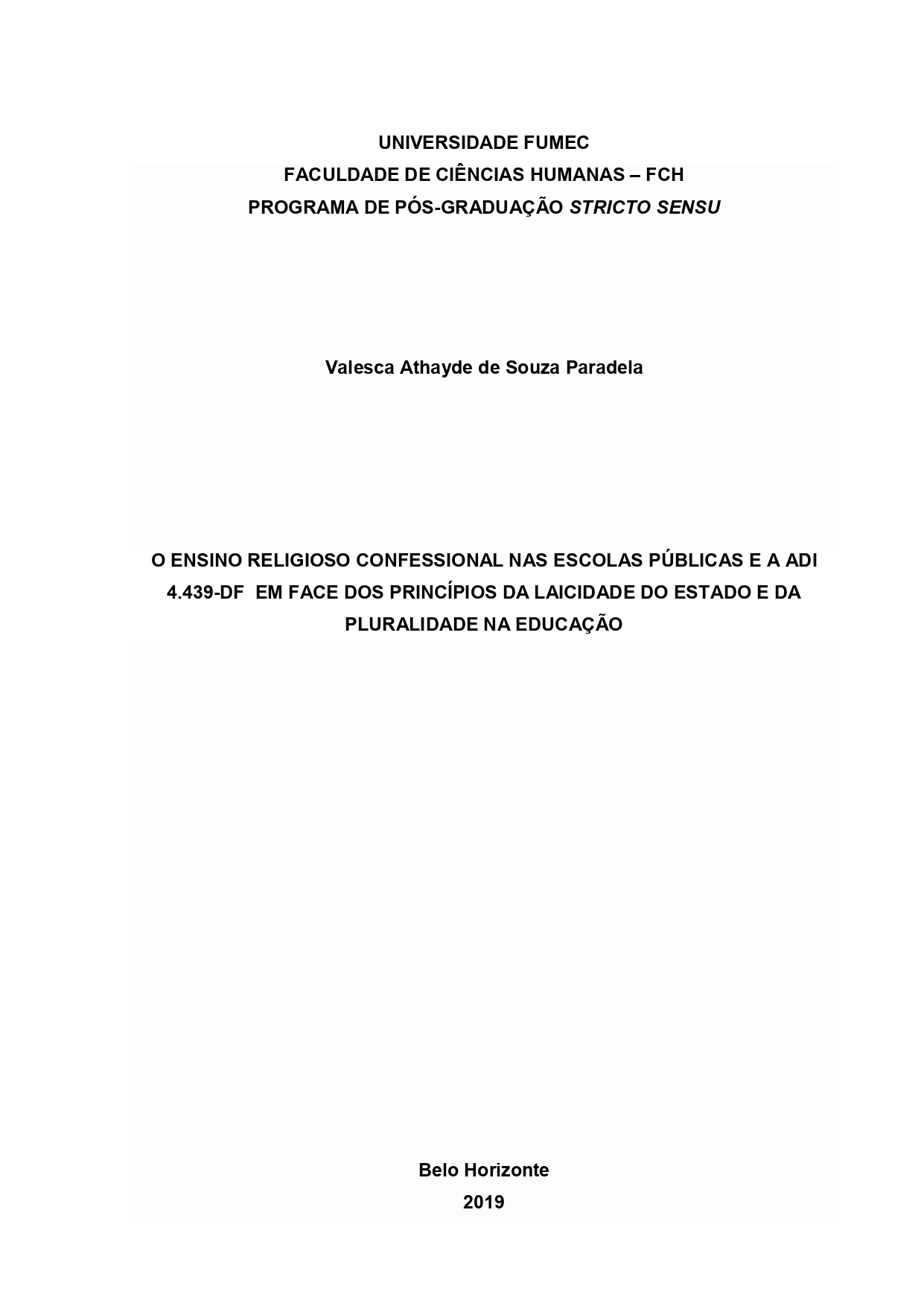O Ensino Religioso Confessional nas escolas públicas e a ADI 4.439-DF em face dos princípios da laicidade do Estado e da pluralidade na educação

Visualizar/
Data
2019Autor
Paradela, Valesca Athayde de Souza
xmlui.mirage2.itemSummaryView.MetaData
Mostrar registro completoResumo
Segundo dados da Prova Brasil, em 37% (trinta e sete por cento) das escolas públicas
a disciplina Ensino Religioso é obrigatória. Considerando, ainda, sua menção no art.
210, § 1o, da Constituição da República de 1988 (CR/88), questiona-se se o ensino
religioso confessional católico e de outras confissões nas escolas públicas, conforme
acordo firmado entre o Brasil e a Santa Sé em 2008, fere os princípios da laicidade do
Estado e da pluralidade na educação. A teoria da laicidade de Michel Miaille foi
utilizada como marco teórico. O trabalho foi desenvolvido a partir de pesquisa em
fontes bibliográficas e do estudo do caso da ação direta de inconstitucionalidade 4.439
Distrito Federal (ADI 4.439-DF) (BRASIL, 2017), no âmbito da vertente dogmático-
jurídica, sendo o tipo de pesquisa descritiva e propositiva. Concluiu-se que o ensino
religioso confessional fere frontalmente o Estado laico, pois cria laço entre uma
religião e o Estado, e viola a pluralidade na educação, porque promove o ensino de
uma religião apenas, tornando-se singular, razão pela qual o trabalho sugere a
proposição de emenda à Constituição da República para retirada do ensino religioso
de seu texto. According to data from the Brazil Test, 37% (thirty-seven percent) the Religious
Education subject are compulsory in public schools. Considering also the mention of
Religious Education in art. 210, paragraph 1, of the Brazilian Constitution of 1988, it is
questioned whether religious denominational religious teaching and other confessions
in public schools, according to an agreement signed between Brazil and the Holy See
in 2008, violates the principles of secularity of the State, plurality in education and
isonomy among other religions. Michel Miaille's Laity Theory was used as the main
theoretical framework, developed from bibliographic data and the case study of ADI no
4439 / STF, in the scope of the dogmatic-legal aspect and in the type of descriptive
and propositive research. It was concluded that religious teaching confessional
frontally wounded the Lay State, because it creates a bond between a religion and the
State, it hurts plurality in education because it promotes the teaching of a religion only,
becoming singular and not plural as it should be, , reason why the work proposes
amendment to the Constitution of the Republic to withdraw of the Religious Teaching
of its text.
